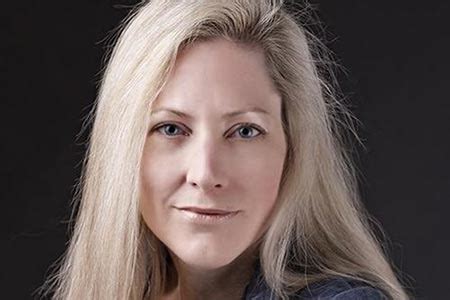A Quote by Carolyn Chute
Today, somewhere in America, more foreclosures. More auctions. Another farmer plots his own death. And another. There is an art to making your death by combine look like an accident.
Related Quotes
There is another side to death. Whether death happens through an act of violence to a large number of people or to an individual, whether death comes prematurely through illness or accident, or whether death comes through old age, death is always an opening. So a great opportunity comes whenever we face death.
The death-change comes. Death is another life. We bow our heads At going out, we think, and enter straight Another golden chamber of the king's Larger than this we leave, and lovelier. And then in shadowy glimpses, disconnect, The story, flower-like, closes thus its leaves. The will of God is all in all. He makes, Destroys, remakes, for His own pleasure, all.
In the entire history of the universe, let alone in your own history, there has never been another day just like today, and there will never be another just like it again. Today is the point to which all your yesterdays have been leading since the hour of your birth. It is the point from which all your tomorrows will proceed until the hour of your death. If you were aware of how precious today is, you could hardly live through it. Unless you are aware of how precious it is, you can hardly be said to be living at all.
When you look at the Bible, and I read the Bible very seriously, for a lot of my life, I believed the Bible ordained the death penalty, and the Bible seemed to be very clear about that. But the more I look, the more troubled I became because it's not that simple. In the Bible, there's some 30 death-worth crimes, like working on the Sabbath, or disrespecting your parents. Are we that fundamental that we should bring back that death penalty?
Who is there today who still cares about a well-finished death? No one. Even the rich, who could after all afford this luxury, are beginning to grow lazy and indifferent; the desire to have a death of one's own is becoming more and more rare. In a short time it will be as rare as a life of one's own.
God knows we have our own demons to be cast out, our own uncleanness to be cleansed. Neurotic anxiety happens to be my own particular demon, a floating sense of doom that has ruined many of what could have been, should have been, the happiest days of my life, and more than a few times in my life I have been raised from such ruins, which is another way of saying that more than a few times in my life I have been raised from death - death of the spirit anyway, death of the heart - by the healing power that Jesus calls us both to heal with and to be healed by.
CALLOUS, adj. Gifted with great fortitude to bear the evils afflicting another. When Zeno was told that one of his enemies was no more he was observed to be deeply moved. "What!" said one of his disciples, "you weep at the death of an enemy?" "Ah, 'tis true," replied the great Stoic; "but you should see me smile at the death of a friend.".
The concentration camps, by making death itself anonymous (making it impossible to find out whether a prisoner is dead or alive), robbed death of its meaning as the end of a fulfilled life. In a sense they took away the individual’s own death, proving that henceforth nothing belonged to him and he belonged to no one. His death merely set a seal on the fact that he had never existed.
Someone's killed 100,000 people. We're almost going, "Well done! You killed 100,000 people? You must get up very early in the morning! I can't even get down the gym. Your diary must look odd: 'Get up in the morning, death, death, death, death, death, death, death - lunch - death, death, death - afternoon tea - death, death, death - quick shower ...' "
Birth leads to death, death precedes birth. So if you want to see life as it really is, it is rounded on both the sides by death. Death is the beginning and death is again the end, and life is just the illusion in between. You feel alive between two deaths; the passage joining one death to another you call life. Buddha says this is not life. This life is dukkha - misery. This life is death.
Each individual composes the music of his own life. If he injures another, he brings disharmony. When his sphere is disturbed, he is disturbed himself, and there is a discord in the melody of his life. If he can quicken the feeling of another to joy or to gratitude, by that much he adds to his own life; he becomes himself by that much more alive. Whether conscious of it or not, his thought is affected for the better by the joy or gratitude of another, and his power and vitality increase thereby, and the music of his life grows more in harmony.
I thought what if death is more like thinking, well, war is like the boss at your shoulder, constantly wanting more, wanting more, wanting more, and then that gave me the idea that Death is weary, he's fatigued, and he's haunted by what he sees humans do to each other because he's on hand for all of our great miseries.






































